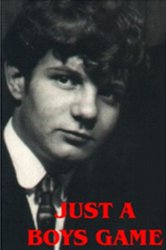My first encounter with Phil Milner was in early 1967 when he came to our little Dojo in Wakefield at St Mary’s School Rooms. At that time, our instructor was Dave Lowe, 1st Kyu, a very good technician of Karate. He pre-warned us all to be on our best behaviour and to be very wary of Phil’s ushirogeri!
Prior to Phil’s visit, we had been receiving instruction from the various Japanese Senseis who were teaching in the country at the time. The Japanese instructors were demanding and very precise in their interpretation of Karate but nothing prepared us for Milner San.
There were very few women or children practicing Karate in the UK and none whatsoever at our club: it mainly consisted of ex-boxers, Judo men, street fighters and general “hard cases” – Phil Milner fitted all four categories.
He took us through a punishing warm-up which should have been banned under the Geneva Convention as it verged on torture. After an hour of this, he knelt us all down around the Dojo then called everyone up, one at a time, for a sparring session. He started with the highest grades and worked his way down to the white belts. You can imagine the fear felt by the lower grades as they watched the senior students being systematically slaughtered by this maniac; his urakens and ushirogeris knocking people out and sending them flying into the furniture. When he had finished off all 20 of us and still showed no signs of tiring, he proceeded with a further hour of his famous 1000 press-ups, squats and sit-ups. It wasn’t unusual to have the next day off work in order to recover!
During this time, Phil used to accompany Sensei Tatsuo Suzuki to our club to grade us as we were then affiliated to the UKKF. However, during the 70’s, Phil founded his own association and the IBA was born.
The IBA team were nicknamed “Milner’s Marauders” and to say that we were not welcomed at many tournaments would be an understatement. The problem was always Phil’s method of training and his idea of whether a punch or a kick had scored a point – contact was required but without malice. It turned out fighters who were not “glove shy” but did not win us many trophies as most of our fights ended in disqualification – completely against the idea of a sporting competition.
I was fortunate enough to partner Phil in the 70’s when he was invited to teach throughout England and Scotland, assisting him with the warm-ups and partnering him in the demonstrations which always made your blood run cold. When demonstrating Jiu-Jitsu he would say “attack me”. I would quietly ask “punch or kick?” to which the reply would always be “anything mate, anything”. Two seconds later, I would be on my back in excruciating pain from an arm lock which always seemed to stay on a few seconds after I had tapped out.
They were great days and I would not have missed them for anything.
The Giri which I owe to my late Sensei, Grandmaster Phil Milner is the reason for the setting up of this web site and the continuance and recognition of all his work within his lifetime of promoting the ideals of the Martial Arts through his unique training methods within The International Budo Association.
He influenced many lives during his 40 years of teaching and many of today’s high ranking Yudansha owe their present status to O-Sensei Milner.
Giri (義理) is a Japanese value roughly corresponding to “duty“, “obligation“, or even “burden of obligation” in English.
Duty (from “due”) that which is owing.
The Law of Obligations is one of the component private law elements of the civil law system of law. The Law of Obligations finds its origins in Roman law which is defined as a “legal tie” or “legal bond” in the Institutes of Justinian. It concerned with situations where a person has incurred a personal liability for which he is answerable at law.
A burden is a heavy weight that is difficult to carry. Metaphorically it refers to anything difficult or troubling. The state of being responsible, accountable, or answerable; a duty, obligation or liability for which someone is responsible or accountable. The obligation to carry forward an assigned task to a successful conclusion. With responsibility goes authority to direct and take the necessary action to ensure success.
Regards to all the past and present IBA Instructors and Students.
Josh




